GlobeScan is a global insights and strategy consultancy helping companies, NGOs, and governmental organizations know their world and create strategies to lead a sustainable and equitable future.
In 2023, GlobeScan conducted an online survey of approximately 1,000 adults across 31 countries and territories. Respondents were asked about global problems, including environmental issues, about trust in governmental and non-governmental institutions; and about the SDGs.
We spoke with Perrine Bouhana, who heads GlobeScan’s Paris office, about public opinion and its implications for development communicators. Here are her thoughts on how understanding public opinion can help communicators speak to their audiences in ways that resonate, to navigate the effects of disinformation and misinformation, and to address challenges like the emerging “greenlash”.
Q: Your 2023 opinion research indicates that national governments are among the least-trusted institutions, while science and academia enjoy the greatest public support. What are the implications these findings for development communicators looking to build trust?
PB: One takeaway is that governments should not communicate alone. Instead, they should consider how to partner or work in collaboration with more trusted voices. Institutions like think tanks, academia and NGOs can lend some of their trust capital if governments communicate jointly with them.
NGOs tend to have greater public trust because they’re seen as mission driven, without conflicts of interest. Governments, meanwhile, need to serve citizens while acting in the interest of the economy and industry. They are seen as more conflicted because there’s multiple elements at play.
Another thing that boosts public trust in NGOs is that they are seen as able to make things happen on the ground. But governments operate in the realm of policy, and it can take a long time for policies to translate to action. This can make their work feel very intangible.
Development communicators who sit in governments could focus on explaining how their work supports NGOs. They can talk about how NGOs help enact the policy or direction set by a national government and its development agencies, without which the NGOs wouldn’t necessarily have connections or legitimacy on the ground.
This could help the public see how all actors fit together and have important roles to play.
One successful example of collaboration was during COVID-19, when governments brought in health experts to explain the progression of the pandemic. In France, pandemic modelling experts spoke on prime-time television. The idea was to show that they supported the government’s approach; that its pandemic response was science-based.
And it worked. While trust in academics and scientists has decreased since the height of the pandemic, our research shows that globally they still come out ahead when it comes to public trust – rated well above the press, national governments or multinationals.
Q: Your research found that concerns about corruption and dishonesty are among the main reasons for lack of trust in government – but there are regional differences. How should reputation management priorities differ for communicators in different global regions?
PB: It’s true that there are clear regional differences when it comes to trust.
In Europe, lack of trust in government comes down to the public perceiving officials as seeking personal gain or being generally dishonest.
This contrasts with Latin America and Africa, where corruption and criminal behavior top people’s reasons for not trusting government.
From a reputation management perspective, this means your strategy as a development communicator – whether you sit in Sao Paulo or Paris – has to be context driven. You have to understand public opinion in your region.
For example, let’s imagine a development agency is starting a project in a country that has seen lots of corruption, and where people don’t trust the government because of it.
If your communications focus on how you’re going to donate billions, people on the ground will just think, “OK, 80% will go into the pockets of politicians.” They will turn off.
For development communicators in that context, the challenge is to explain how specifically aid money will be used. You need to show proof of it going where it is supposed to go and resulting in real benefits on the ground.
And across the board, we need to talk about the real people who stand to benefit from development policies.
For too many citizens of countries that grant aid, development is something that happens “far away.”
A big part of the job is to make development feel personal, and articulate why countries should invest in it.
This first means understanding what people in different countries care about, and then connecting those things to development to build a stronger narrative.
Here, too, our research shows key differences in citizen priorities in Europe versus Latin America versus Africa.
This is why it has been encouraging to see more requests for research that can support localized communications. Development communications professionals are rightly thinking in much more context-specific terms and know there’s no such thing as one-size-fits-all strategy.
Q: Your research shows that overall, public awareness of the SDGs is on the rise. Does this suggest that people feel more personally implicated in achieving them? Or does it suggest that people are simply more worried about them?
PB: I think part of the increased awareness we have seen is purely due to time. When we ran our research in 2023 versus 2017 or 2019, the SDGs had been around longer, so there has been greater public exposure to them.
At the same time, public awareness of the SDGs may be increasing, but this doesn’t mean people know what they are or how the SDGs connect to their lives.
As development communicators, it’s good to know that people are concerned about the problems that the SDGs represent.
But that doesn’t mean our communications should lead with the SDGs.
We need to lead with the tangible issues the SDGs are designed to address – and that many are worried about- in simple, relatable terms.
And we need to articulate how the green transition is going to benefit people, because right now there is a risk that people only see constraints. They only see the additional money they are being asked to spend.
Rather, the transition must be approached as a people transition first because ultimately, if the public is not happy, they will vote or rebel against it and it will be in jeopardy.
This is something we will be watching for in the many elections in 2024. Will we see a wave of backlash against green policies? Will polarization affect election outcomes? That’s very much unknown, and mis- and disinformation has a major role to play.
This issue – whether people feel the green transition is being done against them or is not in their benefit – is also something we’re going to try and measure in future work. For more insights on this topic, you can access GlobeScan’s latest public opinion insights report on Making the Just Transition a Reality here.





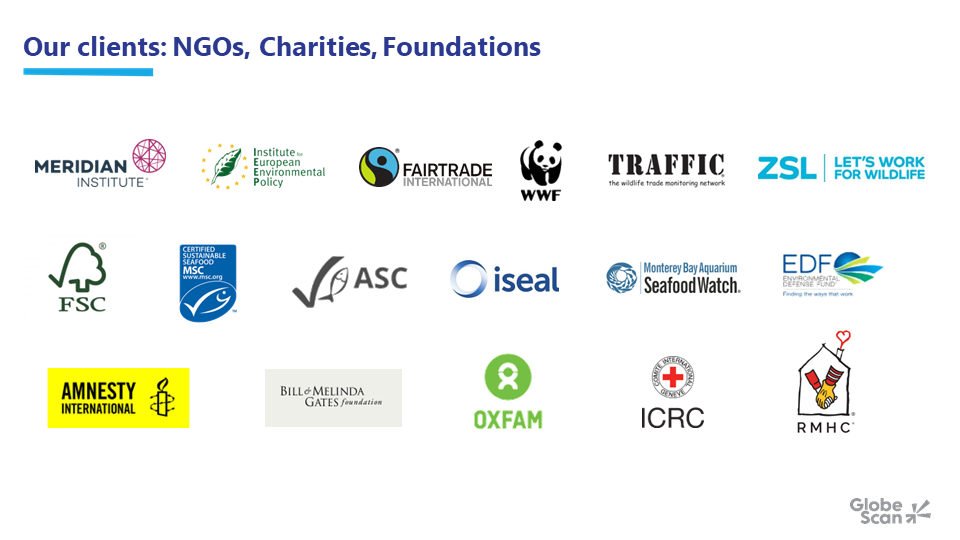



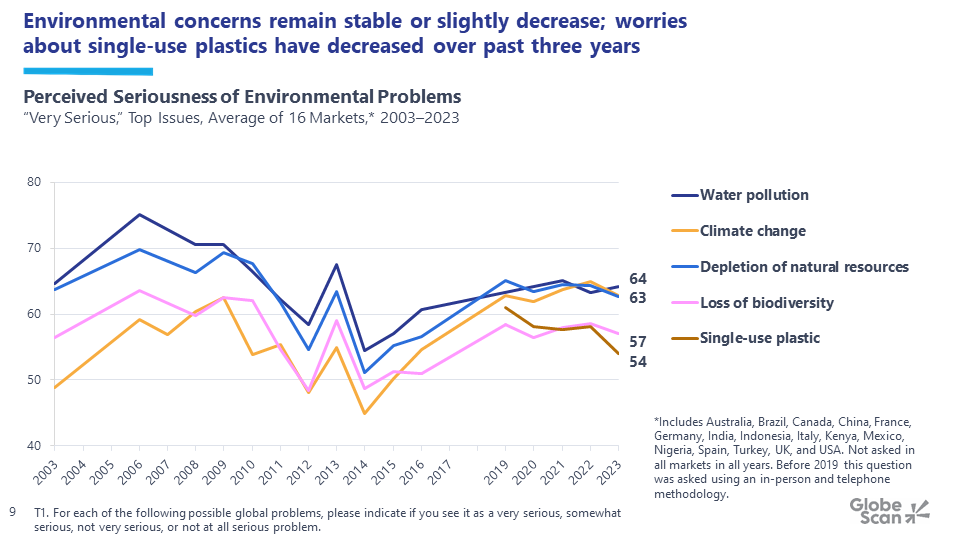
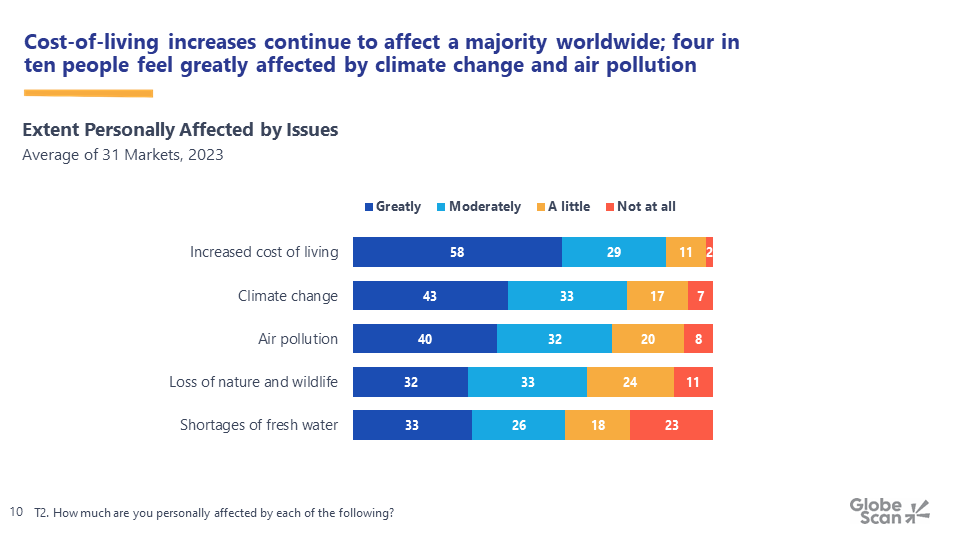
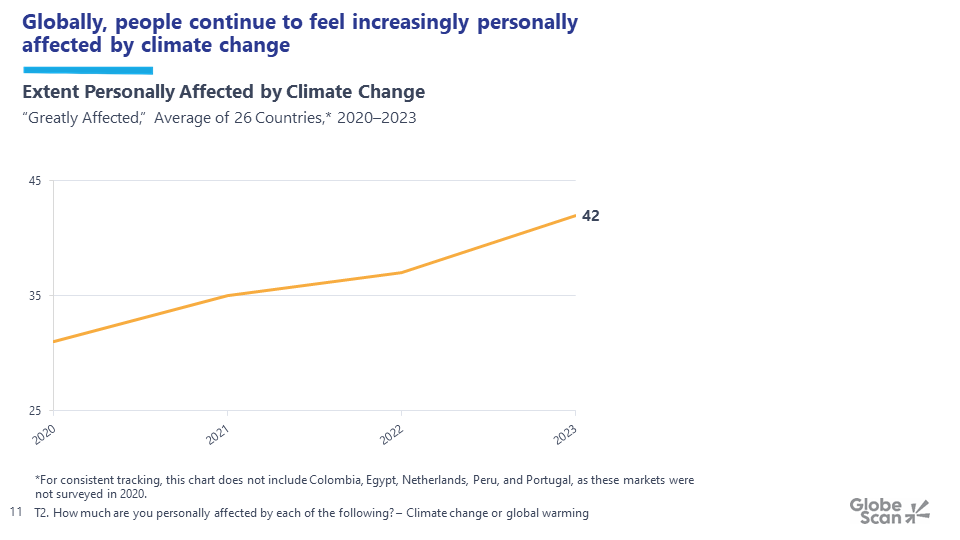
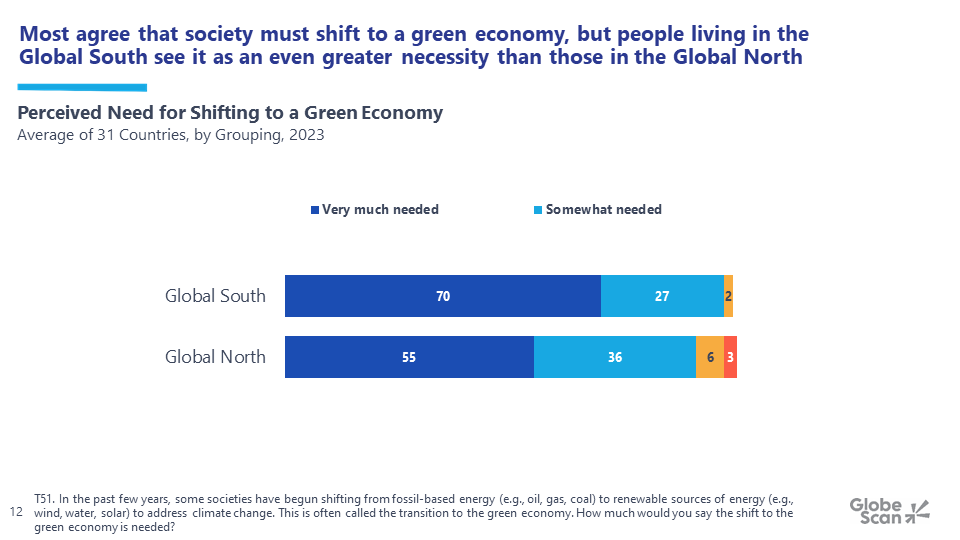



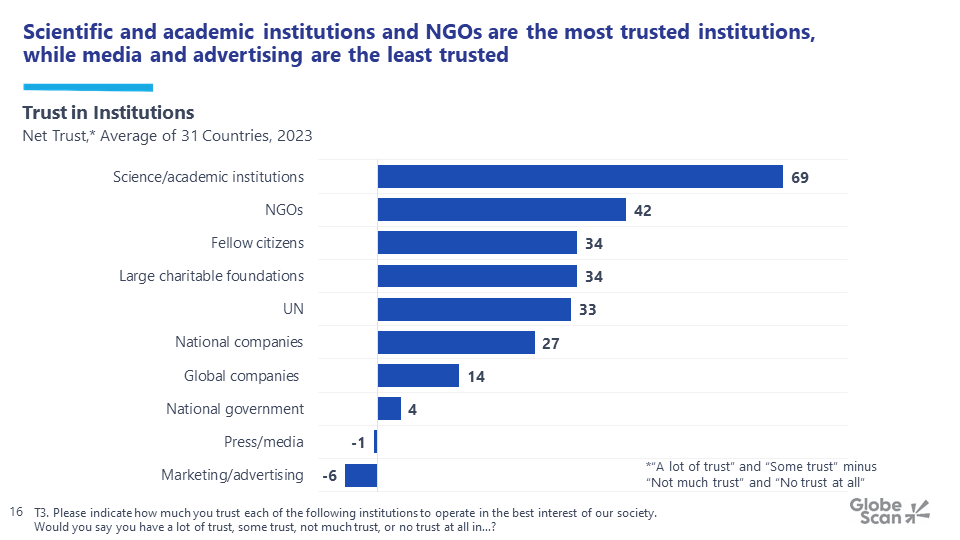
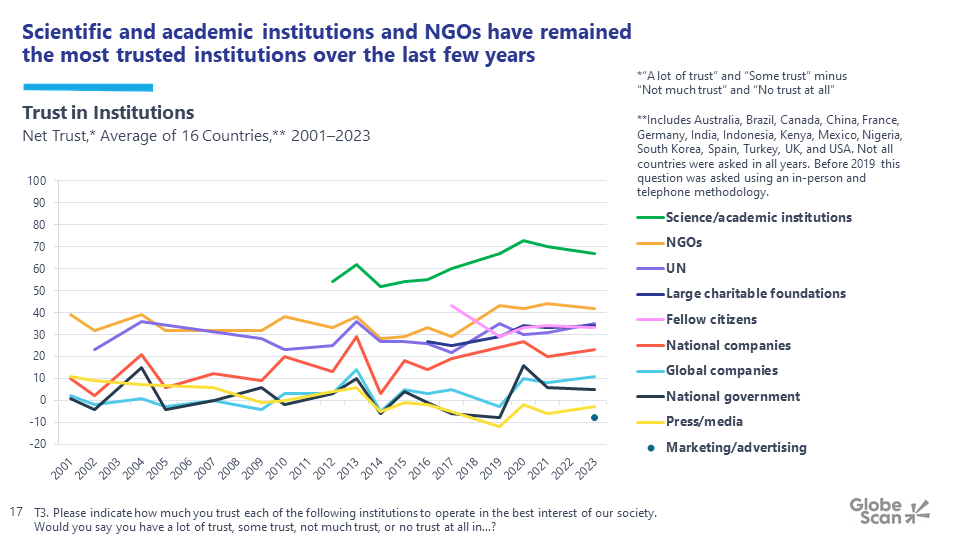


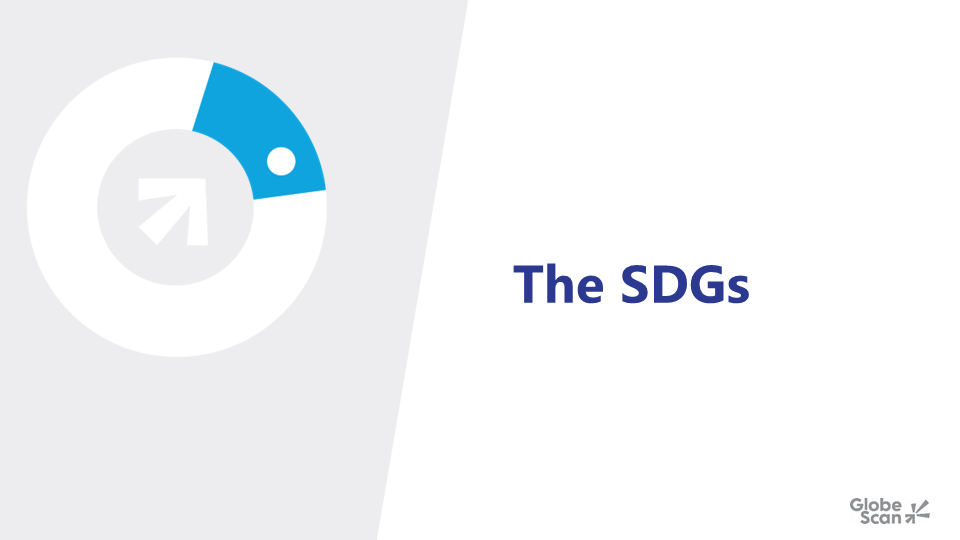

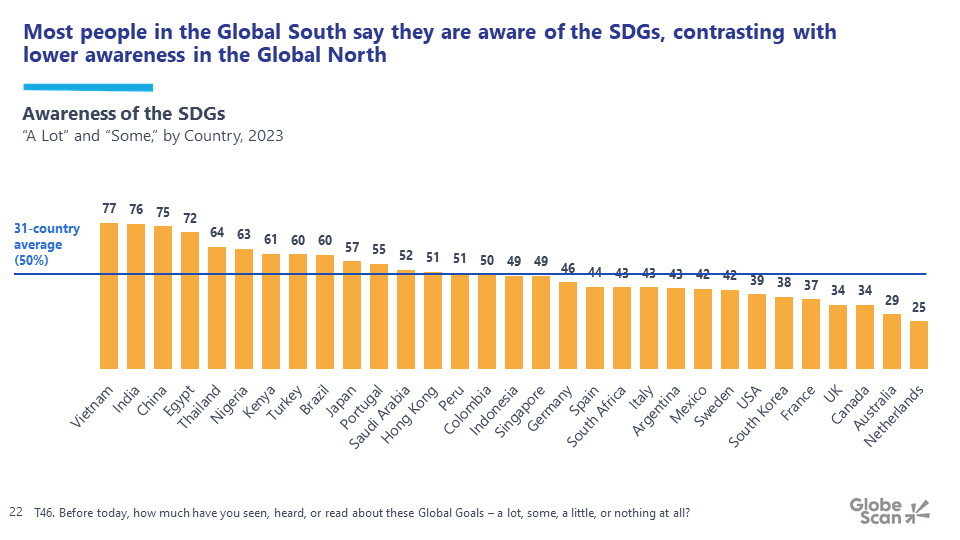

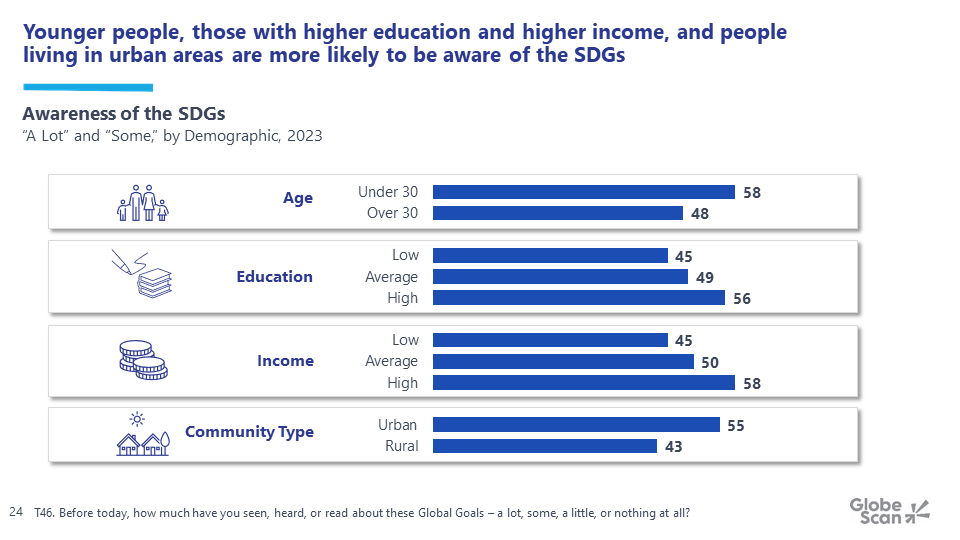



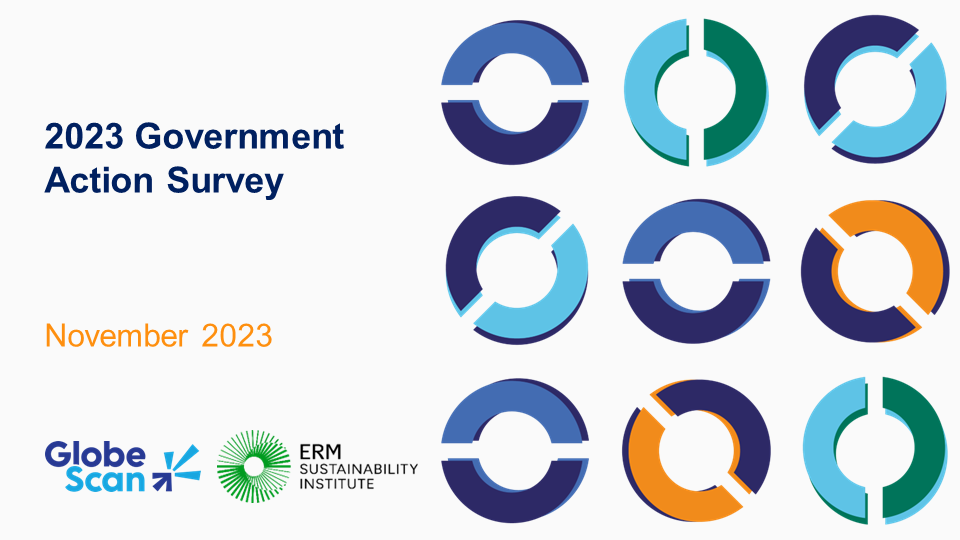
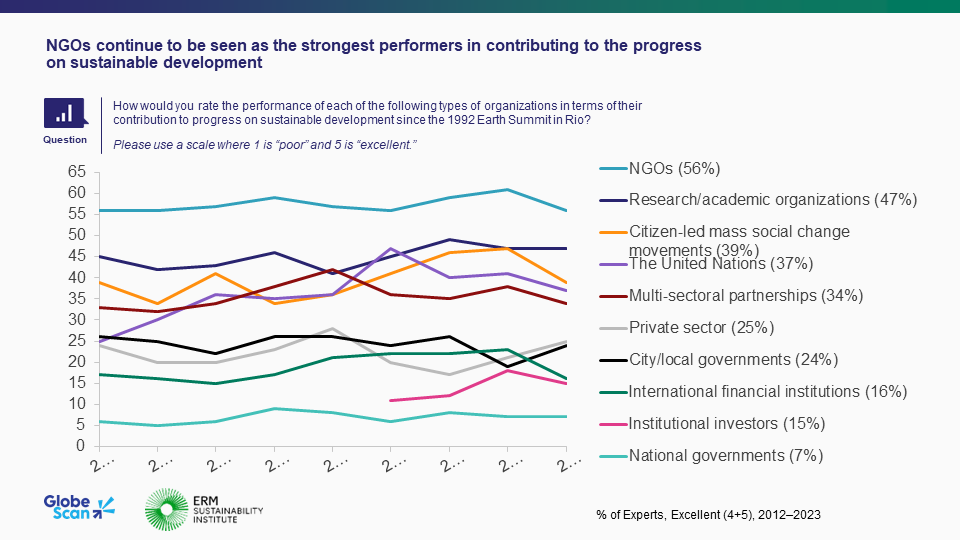



0 comments on “The secret to good development communication? Listening to the public”